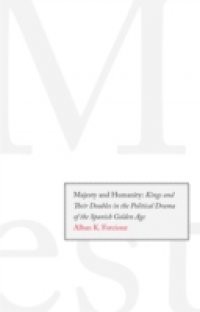In the Golden Age of Spanish Theater, an age of highly dramatized coronations and regal spectacles, Alban Forcione has discovered a surprising but persistent preoccupation with the disrobing of the king. In both the celebrations of majesty and the enthrallment with its unveiling, he finds the chilling recesses in which a culture struggled to reconcile the public and the private, society and the individual, the monarch and the man.In brilliantly reinterpreting two of Lope de Vegas plays, long regarded as conventional royalist propaganda, Forcione places his texts in the context of political and institutional history, philosophy, theology, and art history. In so doing he shows how Spanish theater anticipated the decisive changes in human consciousness that characterized the ascendance of the absolutist state and its threat to the cultivation of individuality, authenticity, and humanity.

